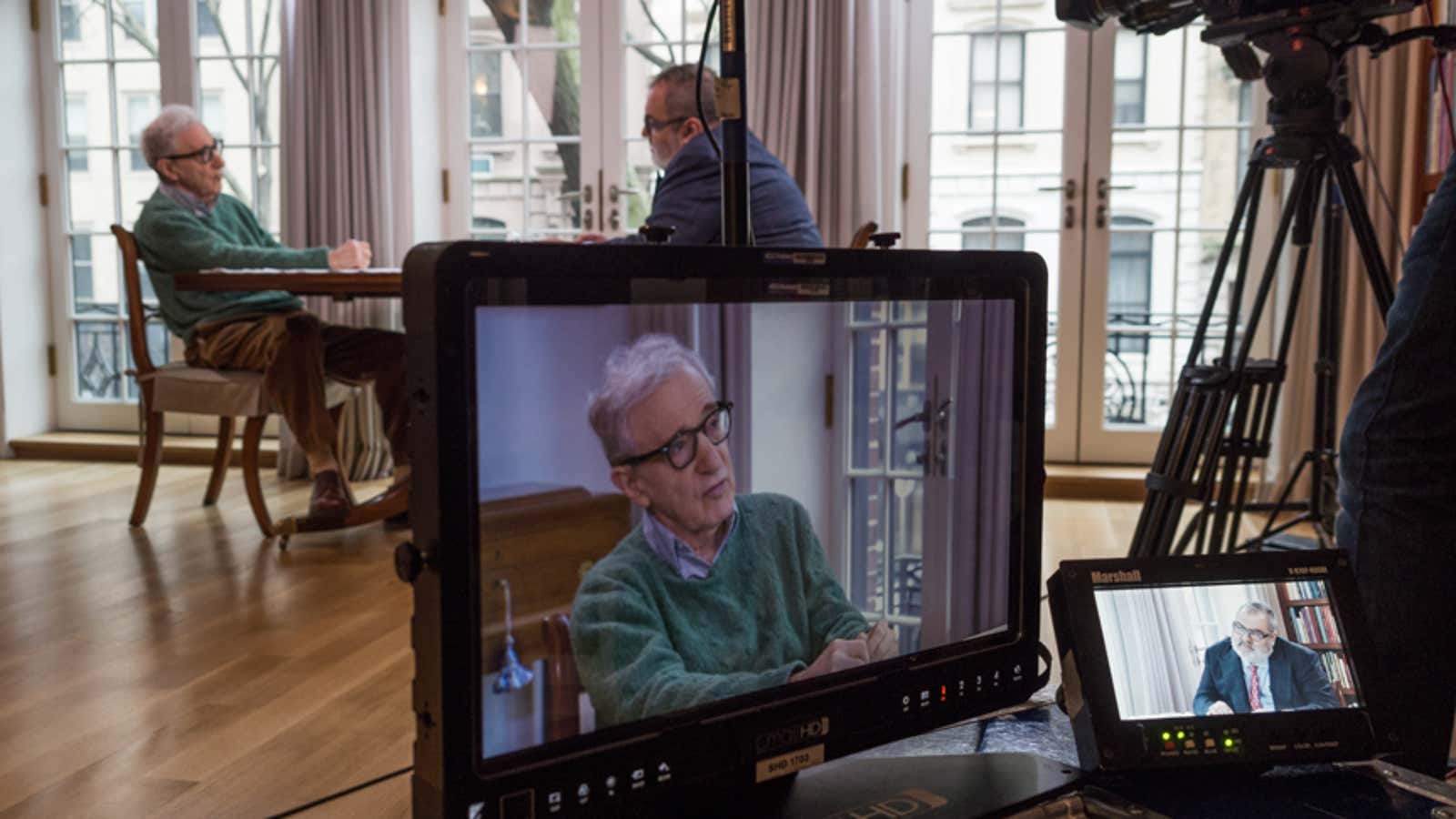In Argentina he’s the most influential journalist in the land, but in the English-speaking world, Jorge Lanata was a virtual unknown when his interview with Woody Allen hit the airwaves Sunday night. During their sit-down, the embattled American director and actor—accused of sexually abusing his adoptive daughter Dylan some 25 years ago—declared himself a “poster child” for the #metoo movement and a staunch ally of women actors in general. Allen’s claims were met with near-universal skepticism.
Lanata succeeded where many journalists have failed, to get Allen to finally share with the world his views on #metoo, the social movement that has ricocheted across the globe. Just how did this portly, bearded, bespeckled, chain-smoking investigative journalist—best known for exposing high-level corruption and malfeasance (paywall)—score a sit-down with one of America’s most famous and controversial directors?
It’s a story that parents forced to socialize at PTA meetings and school pickups might find inspiring: It all came down to a fellow parent at the school where Allen and his wife Soon-Yee sent their kids, Bechet, now 19, and Manzie Tio, now 18.
A common friend of Lanata and Allen made the connection. Pedro Chomnalez, a fellow Argentine and former head of Credit Suisse investment bank, had children who attended kindergarten with Allen’s two daughters, Lanata told Quartz in a phone interview. Lanata asked Chomnalez to reach out to Allen and see if an interview was possible.
Amazingly, it worked: a testament to the power of Manhattan parent networking. Lanata sent Allen a few examples of his work, and Allen agreed to the interview. Lanata met with the director roughly a month ago in New York, where the two sat down at Chomnalez’s private mini cinema to watch Allen’s favorite film, the 1948 Italian neorealist classic Bicycle Thieves, and to shoot the televised interview.
Lanata said that no topics were off limits and there were no formal rules for the chat—other than that it could only be aired in Argentina. “It had to be an open conversation,” Lanata explained, “or else I would not have done it.”
The two men talked mostly about Allen’s long film career. “He actually thinks that some of his most successful films—like Manhattan and Hannah and Her Sisters—are actually his worst,” Lanata said.
The moment in the interview that dominated the headlines came when Lanata asked Allen about the charge that he molested Dylan when she was a child—which he steadfastly denies—and his views of the evolving #metoo movement. Allen described himself a “poster boy” for #metoo and again denied his daughter’s allegations.
For Lanata, who has interviewed Latin America’s most important politicians, cultural figures, and intellectuals, chatting with Allen was a career coup. It was also pretty much business as usual for a journalist whose Sunday evening show Periodismo para Todos could be called an Argentine version of 60 Minutes. “Allen was relaxed,” he said. “It was a good chat.”
The interview caused a sensation in the US, but it failed to win Sunday night’s ratings in Argentina. The local version of the Oscars was showing at the same time, and won the night’s ratings. “Woody Allen is pretty popular in Argentina with certain sectors of the population,” Lanata said. But, he added, “he’s no Michael Jackson.”
